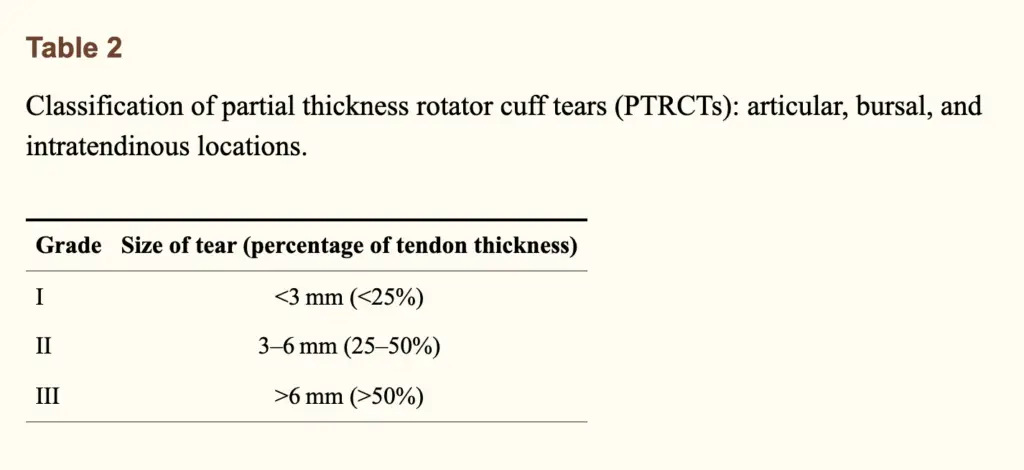Rotator cuff tears come in all different shapes and sizes.
The decision to play golf with or perform any activity that may place the rotator cuff in risk of further injury must be made after consulting your surgeon of physical therapist. In this article, I will discuss a couple different scenarios in which you may be at greater risk for further injury.
The rotator cuff is a collection of four small muscles that surround the head of the humerus. These muscles are responsible for stabilizing the shoulder joint. The most common site of a rotator cuff tear is the supraspinatus muscle and tendon.
Rotator cuff tears are characterized as either a partial thickness tear or full thickness tear.
A partial thickness rotator cuff tear is a situation in which the one or more of the rotator cuff muscles or tendons are “partially” torn. Anything less than 100% is a partial tear. [1]
A full thickness rotator cuff tear is commonly characterized by the muscle or tendon completely rupturing with no remaining attachments.
Partial thickness rotator cuff tears are classified as Grade I, II, III. See chart below.

How do I know if it is safe to Golf with a torn rotator cuff?
There is no way to guarantee that golfing with a rotator cuff tear is safe. Many golfers have unknown, undiagnosed rotator cuff tears and are at risk for further injury, but knowing what to look for can help reduce the risk of progressing a partial rotator cuff tear to a full thickness tear.
3 Signs You Should NOT Golf With A Rotator Cuff Tear
- If you are experiencing pain from the shoulder that radiates down the outside of the upper arm while the arm is at rest.
- If you are experiencing pain that increases with activity and doesn’t improve with your pre-golf warmup routine.
- If you feel unstable in the shoulder joint
Pre-Golf Warm Up Routine
This video shows 5 warm up activities that will prepare the body to play golf.
Reference:
| 1. Matthewson G, Beach CJ, Nelson AA, et al. Partial Thickness Rotator Cuff Tears: Current Concepts. Adv Orthop. 2015;2015:458786. doi:10.1155/2015/458786 |
